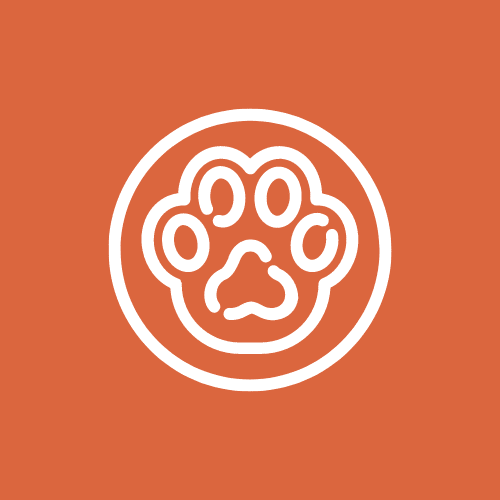Observing a skinny nursing dog after welcoming puppies can be concerning.
It’s a joy to have new puppies at home, but remember, the mother also needs special care, especially if she’s lost weight after birth.
In this post, we’ll explain why this happens and discuss what diet is best for pregnant and nursing dogs.
What Are the Energy Needs of a Pregnant Dog?
During gestation, a female dog undergoes significant physical changes to support the growth and development of her puppies. It is important to note that most fetal weight gain occurs in the final third of the pregnancy.
To accommodate this increased weight, the mother dog’s body needs to undergo substantial changes, including an increase in body weight.
Typically, a female dog’s weight should increase by 15 to 25% by the end of gestation. The amount of food should rise from the 5th week of gestation and by 50% in the 9th week and during the lactation period.
If a pregnant dog does not consume enough food during her pregnancy, it can contribute to her being underweight immediately after giving birth.
Her energy needs can be 3 times higher than her normal requirements. Adequate nutrition is vital to support the developing fetuses and ensure the mother’s health.
What Factors Can Contribute to a Female Dog Appearing Underweight After Giving Birth?
Are you worried about your skinny nursing dog appearing underweight after giving birth?
It’s a valid concern and there could be a few factors contributing to this situation.
In this section, we’ll unpack five potential reasons that may be affecting your dog’s weight, ranging from parasites to metabolic disorders.
Always remember, if you notice any changes in your pet’s health, consult your vet for a thorough examination and treatment plan.
#1 – Parasites
Internal and external parasites such as worms (e.g., roundworms, hookworms), fleas, ticks, and mites can infest a mother dog and her puppies. These parasites feed on the dog’s blood and nutrients, causing weight loss and impacting overall health.
The mother’s immune system may also be compromised during this vulnerable period, making her more susceptible to parasite infestations.
#2 – Infections
Bacterial and viral infections can affect a nursing dog, impacting her weight and overall condition. Mastitis, a bacterial infection of the mammary glands, is a common concern. It causes inflammation, pain, and reduced milk production, leading to weight loss.
Additionally, viral infections like Canine Herpesvirus (CHV) can be transmitted to the puppies during birth, affecting their health and survival.
#3 – Lack of Appetite
The stress and physical exertion associated with giving birth and caring for puppies can lead to a decreased appetite in some dogs.
If the mother dog is not consuming enough food to meet her increased energy demands, it can result in weight loss and a skinny appearance.
#4 – Nutrient Depletion
The process of pregnancy and lactation puts significant demands on the mother dog’s body.
If she does not receive adequate nutrition during this time, her body may become depleted of essential nutrients. Her body will use its reserves to support milk production and care for the puppies.
#5- Metabolic Disorders
Certain metabolic disorders, such as thyroid imbalances or hormonal abnormalities, can contribute to weight loss and poor body condition in a nursing dog.
These disorders affect the dog’s nutrient utilization and energy balance, impacting her overall weight and even her mental health.
Addressing any concerns regarding an underweight appearance in a dog with a veterinarian is essential. He will be able to perform a thorough examination, conduct tests if necessary, and develop a treatment plan to address any underlying infections, parasites, or nutritional deficiencies.
What Potential Dangers Can an Underweight Nursing Dog Face?
An underweight female dog in lactation faces several risks and potential negative effects, both for her own health and the well-being of her puppies. Here are some of the risks associated with it:
- Inadequate Milk Production: Underweight dogs may struggle to produce enough milk to meet the nutritional needs of their growing puppies. Insufficient milk production can result in malnourishment, slow growth, weakened immune systems, and an increased risk of health issues in the puppies.
- Poor Body Condition: An underweight nursing dog may experience further weight loss and poor body condition. This can lead to muscle wasting, decreased energy levels, and a compromised ability to care for her puppies.
- Nutritional Deficiencies: Inadequate calorie and nutrient intake can result in nutritional deficiencies. This can impact her overall health, weaken her immune system, and increase the risk of various health problems.
- Weakened Immune System: Poor nutrition can weaken the mother dog’s immune system, making her more susceptible to infections and illnesses.
- Reduced Milk Quality: Inadequate nutrition can impact the quality of the milk produced. This may result in lower nutritional content, affecting the puppies’ growth, development, and overall health.
- Fatigue and Stress: The mother dog may experience increased fatigue and stress due to the demands of caring for her puppies while lacking proper energy reserves.
- Long-term Health Consequences: The lack of nutrients can have long-term health consequences for the mother dog, such as weakened bones, muscle weakness, and organ dysfunction. These issues may persist even after the lactation period is over.
What Are the Nutritional Needs of a Nursing Dog?
Once the puppies are born, the mother’s body undertakes the critical task of lactation. Producing milk requires a substantial amount of energy, nutrients, and water. To nourish her growing litter, the mother dog must absorb a significant amount of energy from her diet.
Calculating the Energy Needs
Maintenance Energy Requirement (MER) is a term used to describe the amount of energy or calories required by a dog to maintain its current body weight and support normal bodily functions when at rest. It represents the energy needed to sustain basic metabolic processes, such as respiration, digestion, circulation, and organ function, without accounting for additional energy needs related to growth, reproduction, lactation, or physical activity.
To calculate a dog’s MER, a common approach is to multiply its body weight (in kilograms) by a factor that corresponds to its activity level. Here’s how to calculate a dog’s MER :
MER (kcal/day) = 2 x (( 30 x weight in kg) + 70)
In general, the following multiplication factors are used:
| Gestation week 1 to 6 | 1 x MER |
| Gestation week 6 to 9 | 1,3 x MER |
| Lactation week 1 | 1,2 x MER |
| Lactation peak (week 3 to 4) | 3,5 x MER |
| Lactation week 6 | 1,5 x MER |
It’s important to note that dogs with medical conditions or specific dietary requirements may require a different calculation of their MER.
Also, it is important to understand that this calculation only concerns the minimum number of calories the mother must ingest daily and does not contain the number of calories needed to feed and care for her puppies.
See the calculation example below to know how many calories the mother needs to consume per day for both her and the litter.
It is crucial to monitor the dog’s body condition and adjust the calorie intake accordingly to maintain a healthy weight. Overfeeding can lead to obesity, while underfeeding can result in malnutrition and inadequate energy levels.
Consulting with a veterinarian is recommended to determine the appropriate amount of calories for the individual based on their unique characteristics and health conditions.
Calculation Example
Let’s consider an example to understand better the energy requirements of a lactating dog. Suppose we have a 28 kg female Labrador with 8 puppies, whose combined weight is 20 kg at 3-4 weeks of age. The calculation for their energy needs is as follows:
- The energy requirement of the litter is 200 kcal per kg of the litter weight. Therefore, they need a total of 4000 kcal in milk per day.
- The female dog’s milk contains about 1300 kcal/L, so she needs to produce 3 liters of milk per day.
- Since there is approximately 25% energy loss during milk production, it takes 5333 kcal to produce 4000 kcal of milk.
- The female dog’s own energy needs are approximately 1800 kcal per day.
- Therefore, the female dog requires a total of 7118 kcal per day, which is nearly 4 times her maintenance needs!
Meeting the Nutritional Needs
To ensure your pregnant or lactating dog receives the necessary nutrients, consult with your veterinarian to create a suitable diet plan. High-quality dog food specifically formulated for the mother dog and her puppies can help meet their increased energy requirements. These diets are designed to provide a balanced blend of essential nutrients, including protein, fats, carbohydrates, vitamins, and minerals.
Do not increase your dog’s calorie intake abruptly as it can pose several dangers and potential negative effects such as diarrhea, vomiting, and stomach discomfort.
Remember to provide your dog with fresh, clean water at all times, as hydration is crucial for both the mother and her puppies. Additionally, regular veterinary check-ups throughout the pregnancy and lactation period are essential to monitor the mother’s health and adjust the diet as needed.
The Dangers of Overfeeding a Nursing Dog
Overfeeding a lactating female dog can pose several risks and potentially negatively affect both the mother and her puppies. Here are some of the risks associated with overfeeding:
- Weight Gain and Obesity: Overfeeding can lead to excessive weight gain in the lactating dog, which increases the risk of obesity. Obesity puts strain on the dog’s joints, heart, and other organs, leading to a variety of health issues and decreased overall well-being.
- Decreased Milk Production: Overfeeding can disrupt the delicate balance of hormones and nutrients required for milk production. Excessive calorie and low nutrient intake can result in reduced milk production, negatively impacting the puppies’ growth and development.
- Nutrient Imbalances: Overfeeding may cause an imbalance in the intake of essential nutrients, such as proteins, fats, vitamins, and minerals. This imbalance can affect the mother’s health and compromise the puppies’ development, leading to various health issues, including skeletal abnormalities and impaired immune function.
- Difficulty in Weaning: Overfeeding the mother can lead to larger puppies with higher body weight. This can make the weaning process more challenging and stressful for both the mother and the puppies. It may also result in delayed weaning and swimmer puppy syndrome which can disrupt the nutritional transition to solid food and independence.
- Metabolic Disorders: Overfeeding can increase the risk of metabolic disorders, such as diabetes and pancreatitis, in the nursing dog. These conditions can have serious health consequences and require medical intervention.
- Increased Stress on Organs: Overfeeding can place unnecessary stress on the dog’s organs, including the liver and kidneys. This can lead to organ dysfunction, compromised health, and a reduced lifespan.
The Importance of a High-Quality Puppy Food for a Nursing Dog
When it comes to the nutrition of a nursing dog and her puppies, providing high-quality puppy food is crucial. A well-formulated puppy food specifically designed for the unique needs of growing puppies offers numerous benefits during the lactation period. This formula has a high-calorie content, which is perfect for the mother that needs substantial amounts of energy to feed and care for the litter.
Essential Nutrient Requirements
Growing puppies have distinct nutritional needs to support their rapid development.
High-quality puppy food is carefully crafted to provide the essential nutrients for optimal growth. These nutrients include high-quality proteins, carbohydrates, fats, vitamins, minerals, and micronutrients.
The composition ensures the proper balance and bioavailability of these nutrients, supporting the overall health and development of the puppies.
Adequate Energy Supply
Puppies have higher energy requirements than adult dogs due to their active growth and playfulness.
High-quality puppy food provides the necessary energy density to meet the nutritional needs of the mother and her puppies. This ensures that the mother dog’s milk production remains robust and provides the puppies with sufficient energy for their growth, muscle development, and daily activities.
Optimal Protein Content
Proteins are essential for the formation of muscles, tissues, and organs in growing puppies.
High-quality puppy food offers a balanced and adequate protein content to support healthy muscle development, tissue repair, and overall growth.
The amino acids derived from proteins also play a crucial role in various physiological functions, including immune system support.
Essential Fatty Acids for Brain and Vision Development
High-quality puppy food often includes essential fatty acids, such as omega-3 and omega-6, which are vital for proper brain development and vision in puppies.
These fatty acids support cognitive function, neural development, and visual acuity, helping the puppies reach their full potential in terms of learning and behavior.
Optimum Calcium and Phosphorus Ratios
Calcium and phosphorus are essential minerals for the development of strong bones and teeth in growing puppies. High-quality puppy food provides the appropriate balance of calcium and phosphorus to support skeletal growth and prevent abnormalities.
This ratio ensures that the lactating dog’s milk contains the right amounts of these minerals for the puppies’ bone development.
Quality Control and Safety
High-quality puppy foods are produced by reputable pet food manufacturers that adhere to strict quality control standards, unlike low-quality ones. These formulations undergo rigorous testing to ensure they meet the nutritional requirements and are free from contaminants.
Feeding a trusted and reliable puppy food gives you confidence in providing a safe and nutritionally balanced diet to the lactating dog and her puppies.
**The content presented in this article cannot replace the consultation of a veterinarian.**
If you are interested in learning more about canine wellness, check out these articles:






